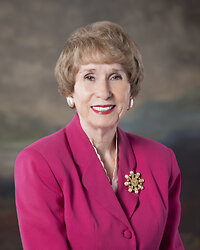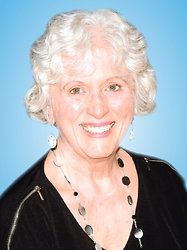What triggers your anger? You may honestly not know and for many of us that is not unusual. You may not be aware of what triggers your anger because the reaction is so quick. Something is said or done and suddenly you find yourself exploding, yelling or saying things you wished you had not. It is not a rational process - it's a reaction.

The more we know ourselves and the more we know what triggers our anger, the more we will be able to respond rather than react. Even during a conflict, we can be who we want to be by being conscious of what goes on in us. One way of being in charge of our anger is to be aware of what sets us off. In the next few articles, I will be examining the triggers of anger, followed by the presentation of how to design and use an anger journal.
Some of the hot buttons have to do with feeling powerless, afraid, discounted, humiliated, embarrassed, and guilty. Angry feelings also arise when we believe there has been abuse, injustice, unfairness, irritation and frustration. Many of the triggers have to do with what made us angry when we were children. If we made a list of what triggers our anger, we might see many we experienced as a child: no one took us seriously, we felt powerless, or worthless. I am going to highlight a few triggers that when pushed, we become angry.
HOT BUTTON: UNFAIR!
For many of us, our anger is triggered when we think we are being treated unfairly and unjustly. The intensity of our anger is in direct proportion to how malicious and intentional we interpret the incident to be. Our anger is going to be more intense if we think the other person deliberately set out to hurt us. We especially feel angry when we feel that we did not deserve what happened to us.
Some people seem to be angrier than most. They seem to have a low tolerance for any type of frustration or inconvenience. They are chronically irritable and grumpy. These people think they should not have to deal with the same frustrations and inconveniences that most people experience. For instance, a man gets angry because there is a long line at the grocery store.
He grumbles to the other people standing around him. The longer the wait, the louder and more obnoxious he becomes. Finally, when he does get waited on, he is rude to the cashier. He personalizes the wait as though he was being singled out for aggravation. Also, he is angry because he thinks it is unfair for him to be inconvenienced.
Other unfair expectations that set us up for anger are: "It is unfair that I worked so hard and I did not receive the praise I thought I deserved." "It is not right that I let that person go in front of me and he did not even say thank you." "When I make a minor mistake, it is unfair that the person corrected me." "After all I did for that person, she still isn't nice to me."
What makes the situation more intense is the belief that we are morally right in our interpretation of what is fair and unfair. "I would never treat other people that way. I deserve to be treated differently."
We might feel justified in being so angry. We are right and the other person is wrong and needs to change or be punished. "Expecting the world to treat you fairly because you are a good person is a little like expecting the bull not to attack you because you are a vegetarian." - (Dennis Wholey)
It would help us in our anger if we realized that not everyone has the same definition of unfairness. "If we were willing to let go of the unrealistic notion that our concepts of truth, justice, and fairness are shared by everyone, much of our resentment and frustration would vanish." (Burns)
Dr. William E. Austin is a licensed psychotherapist and holds a Doctor of Divinity degree. He is a therapist with Tidewater Pastoral Counseling Services . He is well known for his warmth and sense of humor. His book, Creating Our Safe Place - Articles on Healthy Relationships, can be purchased through www.amazon.com.
Tidewater Pastoral Counseling: 623-2700
CURRENT COLUMNS
Children First 
Dandelion Timeby Becky AdamsOn The Front Porch With You 
Memories of Homeby Rob LauerPublisher’s Point 
Time To Moveby Jean Loxley-BarnardRelationships 
When Your Security Blanket is in the Dryerby Dr. Bill Austin

